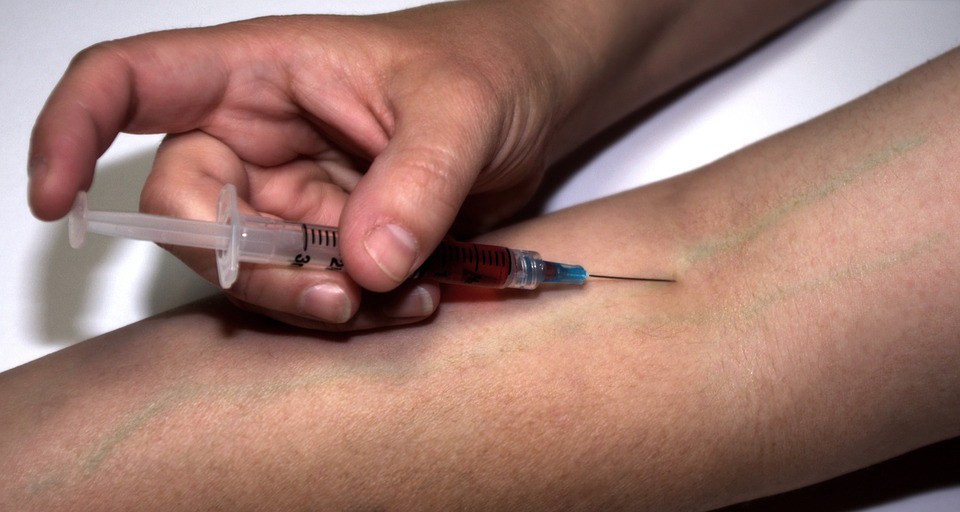The city’s new plan is divided into seven different “mission areas,” each of which are run by different organizations within the city government.

Thursday afternoon, Mayor Jim Kenney unveiled the Philadelphia Resilience Project, a new plan to combat the opioid crisis, at the Emergency Operations Center in the Fire Administration Building on the 200 block of Spring Garden Street. The new plan includes the cleanups of the remaining homeless encampments on Frankford Avenue and Tulip Street.
“Despite the best efforts and investments by the city, it’s become apparent that our current approach is not working,” Kenney said at the news conference. “We must take on a new strategy to tackle these complex issues. New partnerships must be forged and new resources must be brought to bearing.”
The city’s new plan is divided into seven different “mission areas,” each of which are run by different organizations within the city government. Each agency has immediate goals they hope to complete in the coming weeks, short-term goals they hope to complete by the end of the year, and long-term goals they hope to complete by mid-summer 2019.
Mission Area 1: Clear Encampments (led by Office of Homeless Services)
Immediate (by Nov. 16, 2018)
- Clear Frankford Avenue encampment by Nov. 15
- Prevent formation of new encampments on all vacant properties near the Frankford Avenue encampment
Short-term (by Dec. 31, 2018)
- Begin outreach to clear Emerald Street Encampment by Jan. 15
Long-term (by June 30, 2019)
- Develop strategy with stakeholders to prevent encampments from relocating or reforming
Mission Area 2: Reduce Criminal Activity (led by the Managing Director’s Office of Criminal Justice and Public Safety)
Immediate (by Nov. 16, 2018)
- Increase safety measures for children using foot and bike patrols, and daily school checks
- Create and strengthen existing Safe Corridor routes for travel to and from school
- Implement Police Assisted Diversion program in East Police Division
Short-term (by Dec. 31, 2018)
- Enhance federal and state partnerships to address narcotic supply and distribution
Long-term (by June 30, 2019)
- Create and strengthen safe mass transit corridors
Mission Area 3: Reduce Unsheltered Population (led by the Office of Homeless Services)
Immediate (by Nov. 16, 2018)
- Identify temporary site for 24-hour Navigation Center including respite and wrap-around social services
Short-term (by Dec. 31, 2018)
- Explore intermediate housing inspired by Seattle’s use of Tiny Houses
Long-term (by June 30, 2019)
- Examine affordable housing strategies that include family reunification and employment assistance
Mission Area 4: Reduce Trash and Litter (led by the Community Life Improvement Program)
Immediate (by Nov. 16)
- Conduct large-scale cleanup along Kensington Avenue on Friday, Nov. 2
- Place disposal containers at McPherson Square and targeted SEPTA stations
- Provide a temporary Dumpster to support Frankford Avenue encampment closure
- Recruit volunteers with lived experience to assist with regular cleaning
- Use bicycles for mobile collection of discarded syringes
Long-term (by June 30, 2019)
- Pilot mechanical street cleaning on major arteries in Kensington area
Mission Area 5: Reduce Overdoses (led by the Philadelphia Department of Public Health)
Immediate (by Nov. 16, 2018)
- Prevent transmission of HIV and hepatitis by screening, vaccinating, and linking to medical care
Short-term (by Dec. 31, 2018)
- Increase distribution of naloxone (Narcan) and related training
Long-term (by June 30, 2019)
- Implement opioid fatality review process
Mission Area 6: Increase Medication Assisted Treatment (led by the Department of Behavioral Health and Intellectual disAbility Services)
Immediate (by Nov. 16, 2018)
- Disseminate information on all treatment capacity access
- Deploy mobile outreach team including medical professionals to provide Medication-Assisted Treatment
Short-term (by Dec. 31, 2018)
- Expand warm hand-offs between emergency departments and treatment options
Mission Area 7: Mobilize Community Response (led by the Managing Director’s Office of Community Services)
Immediate (by Nov. 16, 2018)
- Create community calendar to encourage neighborhood engagement by highlighting programming across all mission areas
- Identify potential funding partners
- Create and train Philly311 unit for specialized Kensington/Fairhill information and assignments
Long-term (by June 30, 2019)
- Build strategies for citywide awareness and engagement around opioid issue
In 2017, 1,200 Philadelphians died from drug overdoses, and more than 7,000 other overdoses that year were reversed by Philadelphia Fire Department, Police Department and SEPTA Police.
In summer of 2017, about 900 unsheltered people were living in Philadelphia, 400 of whom were living on the streets of these neighborhoods. A year later, in 2018, the number ballooned, with about 1,400 unsheltered people living in Philadelphia, 700 in Kensington and Fairhill alone.
Councilwoman Maria Quiñones-Sánchez said, “I appreciate the mayor’s work to prioritize this crisis, and will continue working with our partners to create better pathways to treatment and relief for those suffering from addiction as well as long-term restorative investment in the community.”
“I am pleased that the administration, City Council and the community groups are working together to address the opioid crisis plaguing our city,” said Councilman Mark Squilla. “We need this collaborative, multi-agency approach to attack this issue on a daily basis and cannot stop until it is under control. I am hopeful that these joint efforts will aid the addicted people living on our streets, as well as improve the quality of life for the residents living in the communities that have been negatively impacted by this epidemic.”
According to the city’s deputy managing director, Brian Abernathy, the crisis will be updated on a weekly basis at phila.gov/opioids.
At the news conference, Abernathy was asked about how fed up neighbors are with the crisis. How can they be sure this new strategy would work?
“We met with a number of community members earlier this week, and I don’t want to speak for them, but I think they’re cautiously optimistic,” he said. “I believe this is the right path forward. I believe that we’re going to see success. But if not…we’re going to try something new.”
